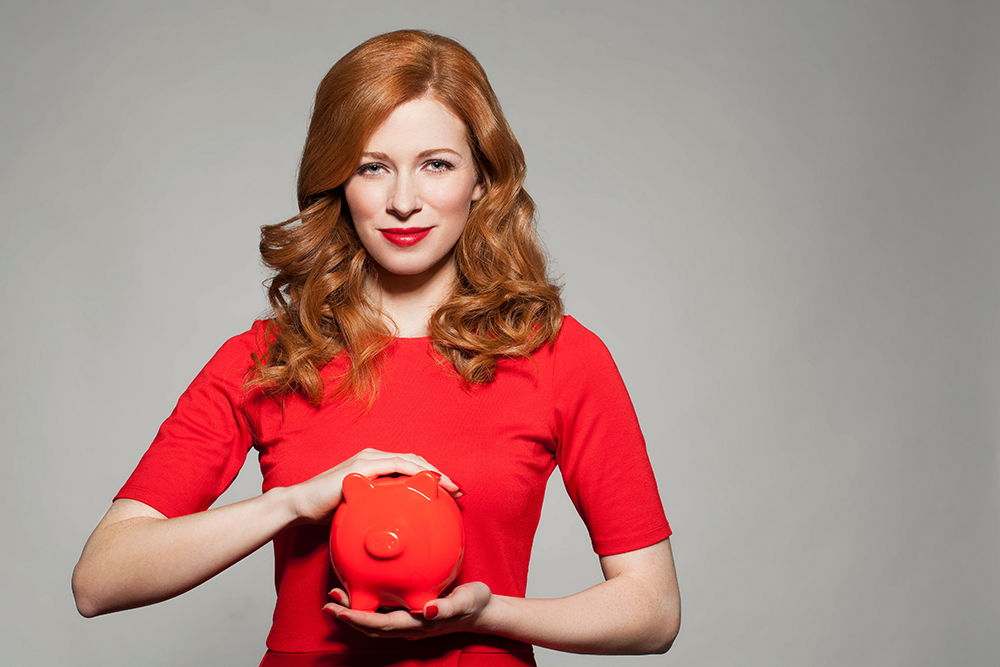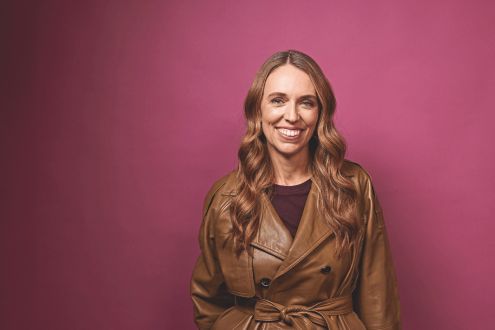Get a grip on your finances
We ask Mrs Moneypenny, investment banker turned stand-up comedian and columnist for the Financial Times, how to get back in the driving seat of our finances

If I haven’t got my head around money by now, I never will, right? Is it too late to start?
No, it’s never too late – and I think that sometimes thinking it’s too late can put people off. One thing that everybody can do is spend one hour a week on their own finances. The first week, buy a notebook. Create a page for each area of your life; your mortgage, your credit cards, groceries, utilities – everything that you spend your money on – and work out how much you spend, taking a full audit of everything. That may take you more than an hour, it might even take up your hour the second week, too.
And then tackle everything, one page at a time. Many books on finances, including mine, will tell you to cut back spending on coffees and so on but, actually, if you deal with the bigger things in life – if you go and renegotiate your utility bills and your car insurance for example – you can probably save enough money to pay for a coffee every day.
But money is so boring…
We think that money will be something unpleasant to deal with, but in fact, if you take charge of it rather than let it take charge of you, money is very interesting – because it can make things happen for you. As I said, just putting aside an hour a week can make a lifetime of difference, and the way to think about it is, it’s not something in its own right, money is just a measure. If you measure the things that you value, you will value the things that you measure. So if you think of it as just a measure, then it becomes more manageable.
If you have a credit card, for example, that’s one page of your notebook… what interest rate are you paying on it? If you have no balance on the card and you aren’t using it, did you know that your credit score can be adversely affected by this? Cancel the credit card or, if you do want to keep it for a rainy day, then reduce the limit.
I hate making packed lunches. How can I spend less on food?
The first thing you need to do is itemise everything in your life. Before you can start anything, you need to know what you are spending your money on in the first place. I don’t mean that coffee every day, I mean your phone bill, anything that you’re regularly paying. Go through your bank statement, then go and change it. You might be locked into a phone contract, but you might be able to get out of it so cheaply that it’s worth walking away from the existing one. That would take you at least an hour to investigate!
My advice is to know exactly what you are spending your money on, and tackle it one thing at a time, one week at a time.
I want to, but I just don’t have enough money to save!
Saving is a habit. It’s like brushing your teeth. So set up another bank account and save something very small into it. Say you save just £10 a month. You get to the end of the year, and your reward for saving £10 every month is that you get to spend half of it – you get to spend £60. Then you keep saving for the next 12 months and you have £60 you didn’t spend from the year before, and now another £120. And you get to spend half of the total sum again, so you have £90 to spend. So even if you only save £10 each month, and you spend half of it each year, you’re still going to be saving.
I’m scared I’m going to be poor in my old age…
The sooner you start preparing your finances for your old age, the better. Most people don’t realise, for example, that children can have pensions. The money you pay in is topped up by the government. If you put the maximum into your child’s pension from when they were born to when they turn 30, your child would never have to add another penny for the rest of their life.
When it comes to pensions it’s really a case of the earlier, the better. The cheapest way to save for your pension is through your employer’s scheme. Even those of us on the lowest salaries will benefit here; for every 75p you pay in to a pension, the government will give 25p. It’s free money. So as well as your £10 a month that I suggest you save, you should also be making a personal contribution to your pension. It’s never too late.
I don’t have much money to spare… how can I be philanthropic?
Having a third dimension in your life – something that isn’t work and isn’t home – adds to your career in an enormous way. By volunteering for a charity or a sports organisation, for example, you can develop all sorts of skills and networking opportunities that you wouldn’t get at work. It is a very important thing to do, and that’s before we even get into the feel-good aspect of it.
When you are young you don’t have much money to give to charity, and frankly, I would rather you were saving £10 into your ISA than giving £10 a month to charity. You’ll be able to do so much more and help other people so much more later on in your life if you are successful with your own money. So when you are younger, focus on giving your spare time instead.
I’m worried about my finances. What can I do if something big goes wrong?
It depends who is going to be affected by something going wrong. For example, if you lost an income into your family and you couldn’t pay the mortgage, then clearly you need to have some protection in place to insure that income. But almost certainly, your company will have some protection in place. You know this hour a week on your finances that I keep banging on about? Most people don’t even know exactly what benefits they get through their company.
Take the time to read the small print of your employee handbook and see what protection your own company has given you already.
Mrs Moneypenny’s Financial Advice for Independent Women by Heather McGregor is published by Penguin, £9.99
Photograph: Corbis









